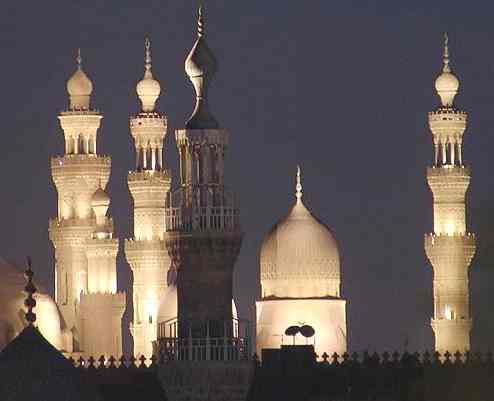Being not quite sure what to blog about today, I finally decided to do yet another blog about Paradise Now, and the lively discussion we had about suicide bombers in class on Tuesday. There were many different opinions expressed on the subject. Some people sympathized with the suicide bombers because of their bad living conditions, while some said they could never sympathize with someone that would kill themselves and others. Some also said they learned new things about Palestine and could perhaps see a reason for these suicide bombers’ decisions, while others said that the film itself did not provide much about the actual situation in Palestine, but rather was just aiming to give suicide bombers a face, and show us what is going on in their minds. Another disagreement was over how much of a role that religion plays to Palestinian suicide bombers, and how much of a role personal circumstances play.
My personal opinion is that the movie itself was fairly moderate, and not aiming to advocate anything in particular. I think it was slightly Pro-Palestinian, and though it was somewhat biased toward their plight versus Israel’s, the only Israeli people shown in the film were innocent ones and friendly-looking soldiers. And the fact that it was fought over as to whether it was Palestinian or Israeli film means that it could not have been too biased. I do think it was trying to humanize people that we truly cannot understand and who are terrible enemies (meaning suicide bombers in general). In this I think the film was successful. Though we cannot imagine committing a crime such as this, we can at least somewhat understand what goes on inside a suicide bomber’s head, and maybe even find ways to stop these people in their decision to commit this awful crime.
I still believe that religion plays a big role in a suicide bomber’s decision, at least for most suicide bombers. There are of course some that probably do not care two bits about religion, but for the Palestinians, their religion at least helps them in their decision, by promising something after death. Think about it: though the situation for Khaled and Said was not great by any means, it also was not totally hopeless. They still had their families to love, and at least somewhat of a normal life with a job, though “normal” was very different for them and their jobs were not well-paying. Do you think that they would have been so willing, at least at first, to make this decision without having heard about the reward for suicide bombers in the after-life? Do you think they would be so-willing to destroy their own lives without any hope for life after death? Plus, they did tape their speeches in front of a portion of the Koran, didn’t they?
But though religion did help their decision, I do no think it was the only cause. I think that the people who recruited them picked Khaled and Said for specific personal reasons, such as passion and past circumstances (such as Said’s father). I also think that the people like this, who prey on young men like Khaled and Said, have their own propaganda system to keep their own “resistance” going, and to help keep the conflict alive, rather than helping it to die down so that peace could possibly be reached. Maybe if these men instead used their cunningness to organize themselves on a diplomatic mission to Israel instead of a killing mission, they would help resolve the conflict. Not that this by itself would bring peace, but it certainly would help. This is the essence of what Suha was saying, I think, and I totally agree with her.




